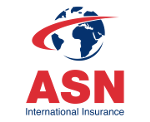Keep a record of the telephone numbers of your doctor, local hospital and clinic, ambulance service, dentist and other emergency services (fire, police) next to your telephone.
Emergency numbers are also displayed prominently at the front of all telephone directories. If you’re unsure whom to call, dial the free national emergency number 113 and you will be put in touch with the relevant service. Note the following recommended courses of action:
- In a life-threatening emergency, such as a heart attack or serious accident, call the free public first-aid number 118. State clearly where you’re calling from and the nature of the emergency, and give your name and the telephone number from where you’re calling. Don’t hang up until the operator asks you to. The appropriate emergency service is sent to you. Provided you call in response to a genuine emergency, you won’t be charged for the use of the emergency services.
- If you need an ambulance (ambulanza), call the local ambulance service (pronto soccorso ambulanza). Most ambulances are equipped with cardiac equipment for emergency heart cases.
- If you’re physically capable, go to a hospital emergency or casualty department (pronto soccorso). All foreigners in Italy have the right to be treated in an emergency, irrespective of whether they have insurance.
- If you need urgent medical treatment outside surgery hours and cannot get to your nearest casualty department, call the local duty doctor service ( guardia medica). This service is usually available from 8pm to 8am on weekdays and from 2pm on Saturdays (and the day before a public holiday) until 8am on the Monday (or the day after a public holiday).
- If you need to see a doctor but are unable to visit a surgery, a doctor will visit you at home provided you call him during surgery hours. If he is away, his office will give you the name and number of a substitute doctor on call.
In Italy it’s an offence to offer medical assistance in an emergency if you aren’t a doctor or qualified in first aid, although it’s also an offence not to assist someone in an emergency, e.g. by calling the appropriate emergency service or offering first aid when qualified to do so.
If you have an existing medical problem that cannot easily be seen or recognised, e.g. a heart condition, diabetes, a severe allergy or epilepsy, or you have a rare blood group, you may wish to join MedicAlert. MedicAlert members wear an internationally recognised identification bracelet or necklace, on the back of which is engraved details of your medical condition, your membership number and a 24-hour emergency phone number. When you’re unable to speak for yourself, doctors, police or paramedics can obtain immediate, vital medical information from anywhere in the world by calling this number.
MedicAlert is a non-profit registered charity and members pay for the cost of the bracelet or necklace (from GBP20, plus an annual fee of GBP30). You can now renew your membership by Direct Debit. All members who renew membership receive a GBP2.50 discount. The first year's membership, which includes any jewellery, must be paid by card or cheque.
For more information
- Visit the MedicAlert Foundation website
- Tel: +44 (0) 1908 951045
- Email:
This article is an extract from Living and Working in Italy from Survival Books.




